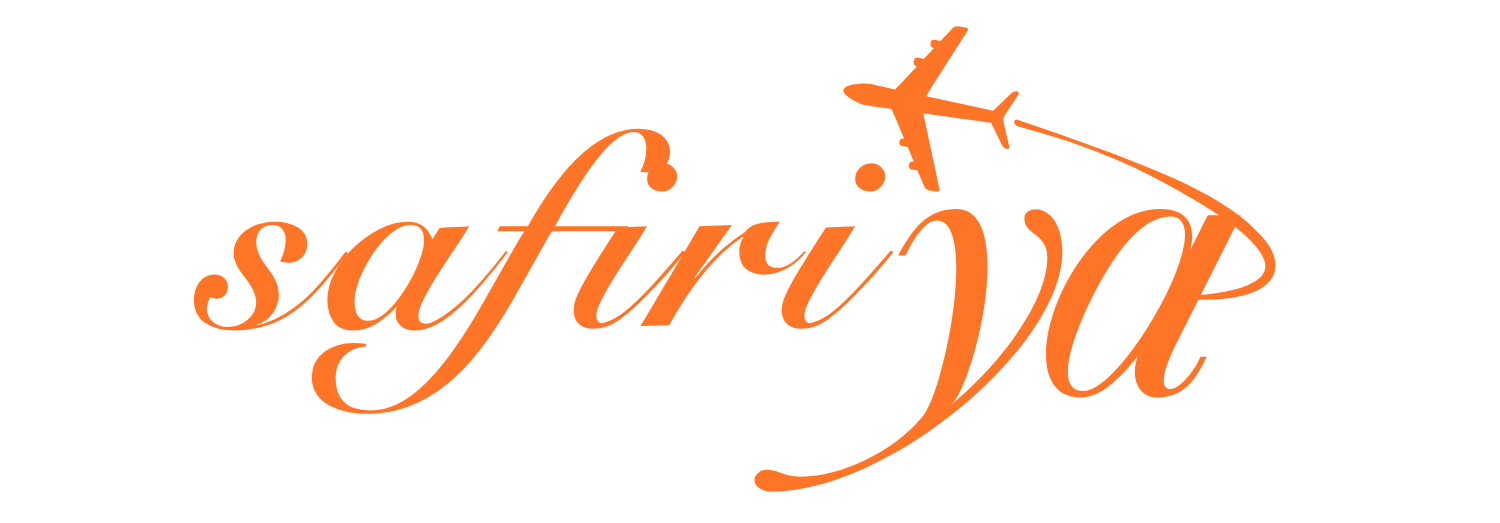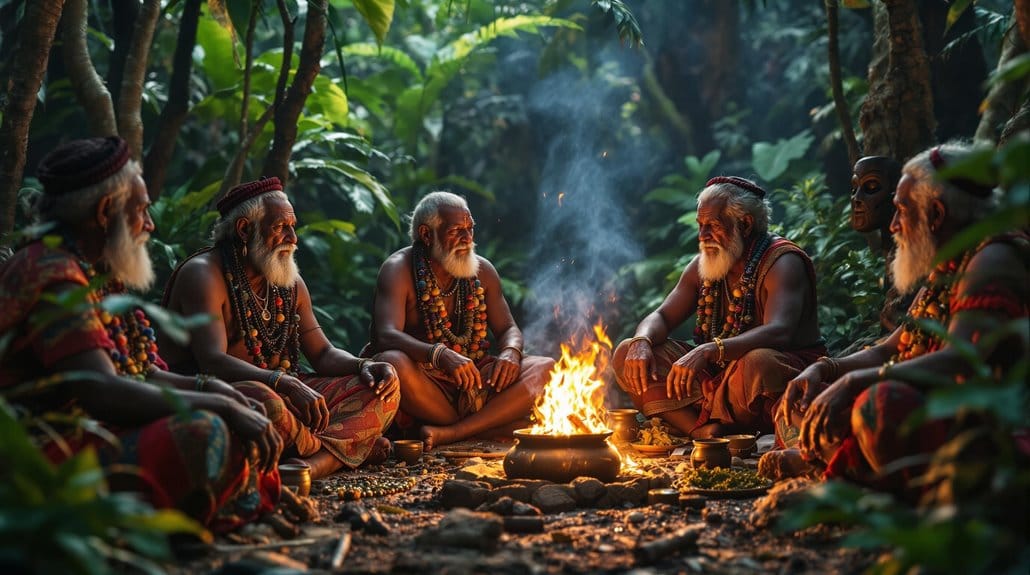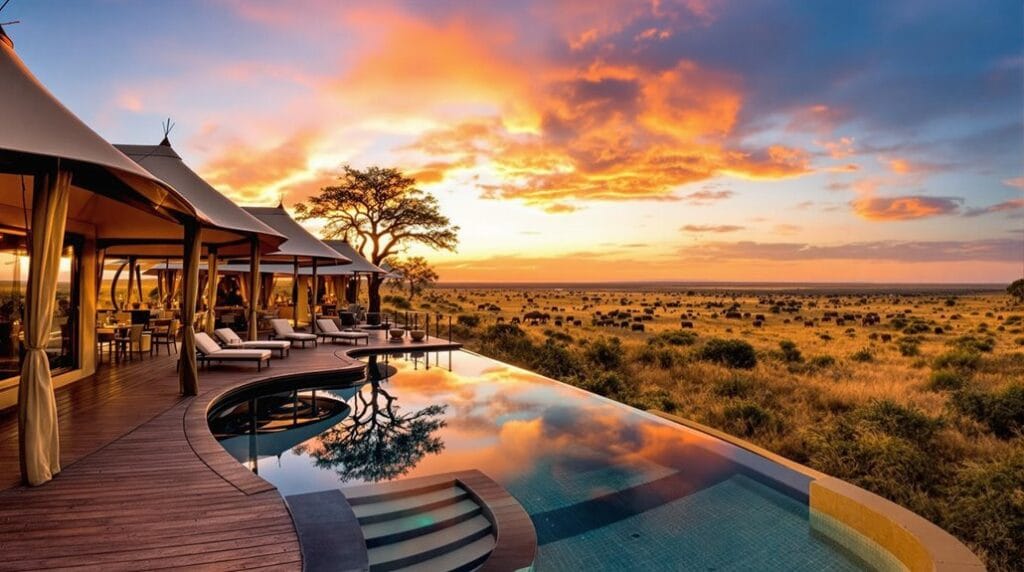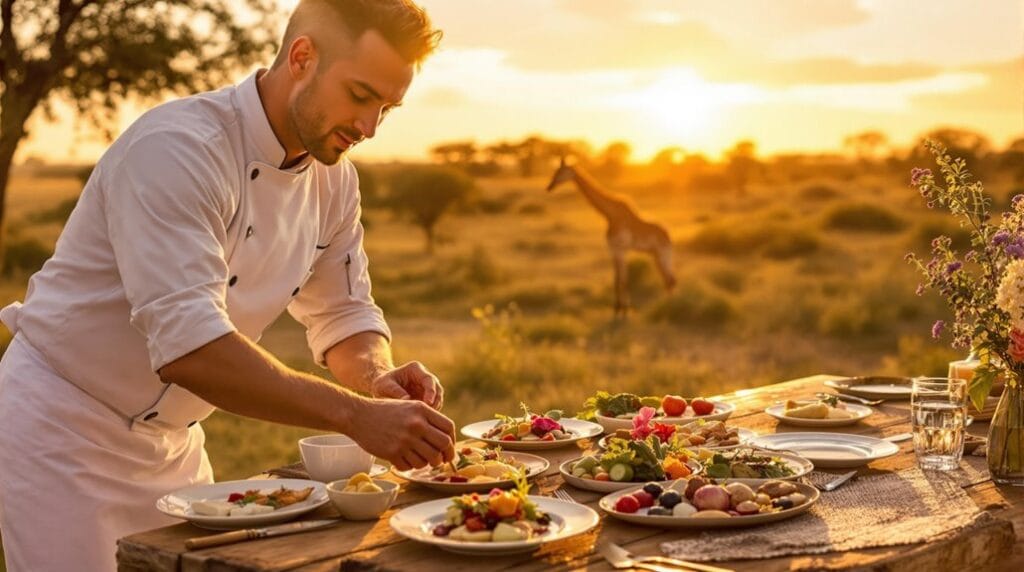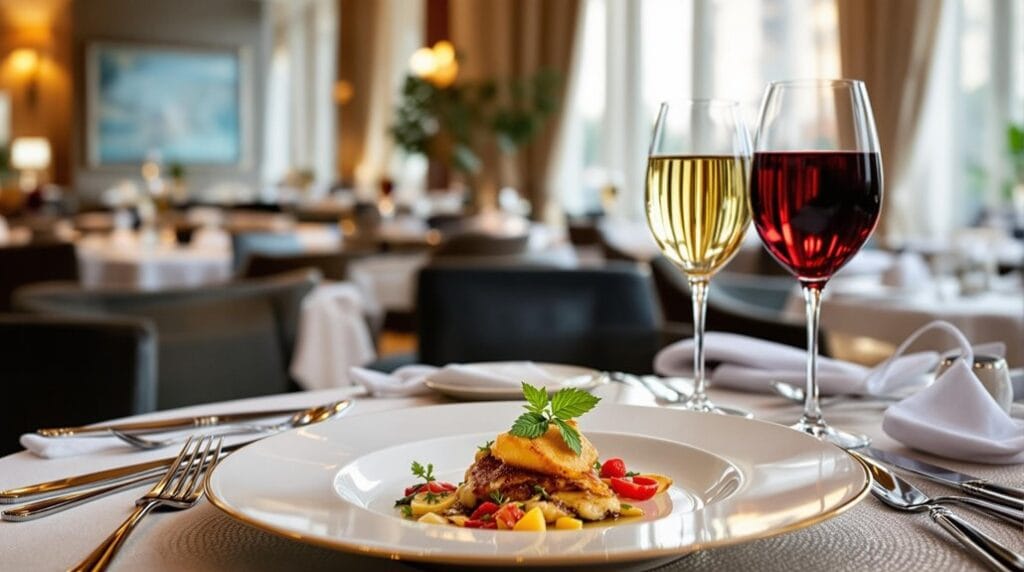Is it possible that the ancient wisdom of African healing rituals holds the key to a more holistic understanding of wellness? You might find it intriguing how these practices, led by traditional healers, blend spiritual and physical elements to address not just ailments but also community ties. By exploring the techniques and herbal remedies employed, you'll uncover insights that challenge modern perceptions of health. What's even more compelling is how these age-old rituals resonate in today's world, raising questions about their relevance and adaptation in contemporary society.
Key Takeaways
- Bungoma practices emphasize the holistic connection between physical, spiritual, and emotional health, crucial for effective healing in African communities.
- Izangoma healers use drumming and dancing during Ngoma Ceremonies to diagnose and treat ailments, integrating cultural rituals into healing.
- Communal rituals such as singing and dancing foster social bonds while reinforcing cultural identity, essential for the healing process.
- Herbal remedies, derived from local flora, are foundational to traditional healing, with knowledge passed down through generations for effective treatments.
- Despite modern challenges, traditional healing practices maintain cultural relevance and community health in rural areas lacking access to Western medicine.
Overview of Traditional Healing
Traditional healing practices, often referred to as Bungoma, play an essential role in the cultural fabric of various African communities, particularly among the Zulu, Xhosa, Ndebele, and Swazi tribes in South Africa. These practices encompass a rich tapestry of healing methods, including witchcraft and divination, which are deeply intertwined with the community's beliefs and values.
You'll find that traditional healers, known as izangoma, hold a revered status akin to medical doctors. They act as crucial communicators between the living and ancestral spirits, offering not just physical healing but also spiritual and emotional support.
The holistic approach taken by these healers emphasizes the interconnectedness of well-being, addressing the individual within the context of their community. Healing rituals are often passed down orally, highlighting the importance of communal participation and shared history.
As you engage with these practices, you'll notice how they empower individuals, particularly women, fostering harmony and resilience within the community. Embracing Bungoma means recognizing the profound relationship between health, spirit, and culture, each thread weaving together a narrative of belonging and identity that resonates through generations.
Roles of Traditional Healers
Traditional healers, or izangoma, play an essential role in bridging the gap between the physical and spiritual worlds, often using specific communication methods to invoke ancestral spirits during healing rituals.
In communities where access to Western medicine is scarce, these healers step in as primary health providers, leveraging their vast knowledge of local medicinal plants.
Their training and initiation process, rooted in personal experiences and mentorship, equips them to address not just physical ailments but also the cultural and ethical needs of their communities.
Spiritual Communication Methods
In the intricate tapestry of African healing practices, spiritual communication methods play an important role in bridging the gap between the physical and spiritual domains. Traditional healers, like izangoma and inyangas, act as intermediaries, guiding you through healing processes by connecting with ancestors and spiritual entities. Their work is deeply rooted in the community's cultural heritage, making it crucial for emotional and spiritual rejuvenation.
Here are four key spiritual communication methods employed by traditional healers:
- Rituals: They invoke ancestral spirits through singing, drumming, and dancing, bringing participants together in a shared experience.
- Offerings: By presenting sacrifices to ancestors, healers seek favor and guidance, reinforcing the bond between the community and its spiritual lineage.
- Divination Techniques: Healers use these methods to diagnose health issues, drawing on their vast knowledge of cultural and spiritual dynamics.
- Mentorship: Aspiring traditional healers often undergo rigorous training under experienced practitioners, validating their spiritual callings and ensuring the continuity of these sacred practices.
Through these methods, traditional healers cultivate a sense of belonging and communal identity, important for holistic healing.
Community Health Providers
Healers often serve as the backbone of community health, seamlessly integrating spiritual beliefs and practical remedies to address a wide spectrum of medical and emotional challenges. As traditional African healers, they act as essential community health providers, bridging the gap between the physical and spiritual domains. Their extensive knowledge of local medicinal plants positions them as trusted sources for herbal medicine, particularly in rural areas where modern healthcare access is limited.
These healers don't just treat ailments; they offer counseling, education, and spiritual guidance, reinforcing cultural beliefs and practices. Their healing practices often involve communal rituals, where singing, drumming, and ancestral spirit invocation create a powerful atmosphere of healing and connection. By participating in these rituals, you become part of a collective experience that fosters community cohesion.
Moreover, traditional healers respond to personal illness with a spiritual calling, guided by mentorship from experienced practitioners. This deep-rooted connection to their culture and community guarantees that their methods remain relevant and effective.
In this way, they uphold not only individual health but also the well-being of the community as a whole, making them indispensable figures in the fabric of society.
Training and Initiation Process
Many aspiring healers commence their journey after experiencing a profound personal illness or a spiritual calling, signaling their readiness for this sacred vocation. The training process for traditional healers is both rigorous and transformative, requiring dedication and respect for cultural practices.
Here's a glimpse into the training and initiation process:
- Living with a Mentor: You'll live with an experienced healer, absorbing their knowledge and practices in a hands-on environment.
- Verification of Calling: Before your training begins, diviners assess the authenticity of your spiritual calling, ensuring you're genuinely suited for this role.
- Ceremonial Evaluation: Your competency is evaluated through ceremonies where adherence to traditional methods is assessed, marking a crucial step towards independent practice.
- Diverse Expertise: You'll learn about herbal medicine, spiritual communication, and community health, preparing you to serve as a healer with different types of expertise.
Through this process, you'll not only gain the necessary training and expertise but also become a spiritual guide and educator, reinforcing your essential role in the community's social and cultural fabric.
Each step is a commitment to healing and belonging.
Cultural Significance of Healing Practices
When you explore the cultural significance of African healing practices, you'll see how ancestral spirit invocation and community rituals shape identity.
These ceremonies not only foster a deep connection to heritage but also reinforce social ties among participants, creating a sense of belonging.
Ancestral Spirit Invocation
Ancestral spirit invocation serves as a vital cornerstone of traditional African healing practices, allowing practitioners to tap into the wisdom of their forebears. This sacred ritual is more than just a healing method; it's a profound connection to your community's identity and history.
Through the guidance of skilled healers, known as izangoma, you participate in a transformative experience that fosters collective memory and spiritual heritage.
Here are four key elements of ancestral spirit invocation:
- Collective Engagement: Rituals often involve communal singing, drumming, and dancing, creating an energetic atmosphere that uplifts everyone involved.
- Spiritual Connection: By invoking ancestors, you bridge the gap between the living and the spiritual domain, receiving wisdom and healing that transcends generations.
- Healing Support: Healers act as intermediaries, using their knowledge to facilitate communication with ancestral spirits, ensuring that participants receive the guidance they need.
- Cultural Continuity: This practice reinforces community identity, helping you to feel connected to your roots and the shared experiences of your ancestors.
Through ancestral spirit invocation, healing becomes a communal journey, deepening your sense of belonging.
Community Rituals and Identity
Rituals within African communities not only connect individuals to their ancestors but also serve as crucial expressions of cultural identity and solidarity. These community rituals act as a powerful means of cultural continuity, weaving together shared histories and collective memories.
When you participate in these ceremonies, you're not just honoring the past; you're actively reinforcing spiritual beliefs that shape your identity within the cultural context.
Traditional healers, or izangoma, play a significant role in these rituals, guiding the community in honoring ancestral spirits (amadhlozi) that influence governance and ethics. The invocation of these spirits during ceremonies serves as a diagnostic tool, helping healers provide tailored emotional support and treatment options.
As you join in collective celebrations filled with singing, drumming, and dancing, you experience a profound sense of belonging. The consumption of Umqombothi (sorghum malt beer) enhances these communal experiences, fostering deeper social bonds.
Together, these rituals counteract internalized racism, promoting harmony and resilience. Fundamentally, community rituals aren't just events; they're the heartbeat of cultural identity, binding individuals together in a shared journey of healing and self-discovery.
Key Rituals and Techniques
In ancient African healing practices, communal gatherings play a vital role in fostering a sense of connection and support among participants. These healing rituals not only promote wellness but also unite the community in shared spiritual experiences.
Here are some key techniques that embody this ancient wisdom:
- Ngoma Ceremonies: Through drumming and dancing, these rituals act as diagnostic tools, allowing healers to connect with spiritual domains and discern the best treatment methods.
- Offerings to Ancestors: Participants often make offerings, invoking ancestral spirits to guide the healing process. This emphasizes the importance of spiritual support in the journey to wellness.
- Holistic Consultations: Healing sessions typically start with assessments of both physical and spiritual well-being, addressing inherited traumas that require thorough treatment.
- Herbalism Practices: Utilizing indigenous flora, practitioners employ their extensive knowledge of plants to create effective remedies for various ailments.
Herbal Remedies in Healing
Herbal remedies form the cornerstone of ancient African healing practices, showcasing a profound connection between nature and wellness. You'll find that these remedies utilize various plant parts—roots, leaves, barks, and seeds—to treat ailments and promote overall health.
This rich understanding of local flora reflects the deep-rooted knowledge passed down through generations of practitioners in African traditional healing.
These healers possess extensive expertise in selecting the right herbs, determining dosages, and understanding their efficacy. Their holistic approach prioritizes health promotion and disease prevention, focusing on nurturing the body rather than merely alleviating symptoms.
For instance, plants like Moringa and Rooibos aren't only celebrated for their healing properties but also for their nutritional benefits, highlighting the interconnectedness of diet and wellness.
Despite some skepticism from Western medicine regarding quality control, the historical use of herbal remedies predates modern medicinal practices and continues to serve as a foundation for natural health solutions.
Embracing these ancient practices invites a sense of belonging to a rich cultural heritage, reminding you that wellness is woven into the very fabric of nature.
Contemporary Relevance and Challenges
The enduring legacy of traditional African healing practices faces a complex landscape in today's world. You might find that while these practices are deeply rooted in cultural heritage, they often encounter skepticism when juxtaposed with modern medicine. This tension manifests in various ways:
- Cultural Significance: Traditional practices remain essential for identity, especially in rural communities with limited healthcare access.
- Globalization's Impact: Urbanization can overshadow these practices, leading many to lean heavily on modern healthcare solutions.
- Ethical Concerns: The rise of fraudulent practitioners blurs lines, causing mistrust and undermining legitimate Traditional Health Practitioners.
- Growing Interest in Holistic Health: As society increasingly embraces holistic health approaches, there's a renewed recognition of the potential for traditional methods to complement modern healthcare systems.
Despite these challenges, traditional healing methods hold contemporary relevance. They offer a sense of belonging and community, connecting individuals to their heritage while also providing valuable support.
As you navigate this evolving landscape, consider the balance between integrating traditional practices and embracing the advancements of modern medicine, fostering a more inclusive approach to health and wellness.
Frequently Asked Questions
Who Is the African Healer God?
The African healer god embodies ancestral wisdom and spiritual connection, guiding you through herbal remedies. By engaging with your community, you deepen your understanding of holistic healing, fostering a sense of belonging and well-being.
What Is the African Healing Method?
What if healing isn't just about symptoms? The African healing method combines herbal remedies, spiritual guidance, community involvement, and ancestral wisdom, fostering a holistic approach that nurtures body, mind, and spirit, offering profound belonging.
What Are the Three Types of African Rituals?
The three types of African rituals—common remedies, familial practices, and specialist ceremonies—foster spiritual cleansing, ancestral worship, and community bonding, emphasizing a profound connection to nature while nurturing a sense of belonging within shared traditions.
What Are the 4 Methods of Healing Used by Traditional Healers?
Traditional healers employ herbal medicine to treat ailments, offer spiritual guidance to connect with ancestors, practice energy cleansing to restore balance, and create a deeper ancestral connection, fostering a sense of community and belonging in healing.
Conclusion
In a world obsessed with scientific advancements and quick fixes, it's ironic how ancient African healing rituals, steeped in spirituality and community, continue to reveal truths about holistic well-being that modern medicine often overlooks. These practices emphasize that true health isn't just about eradicating symptoms, but nurturing the soul and fostering connections. As we rush toward progress, it's worth pausing to reflect on the wisdom of the past—sometimes the secrets we seek lie not in innovation, but in tradition.
